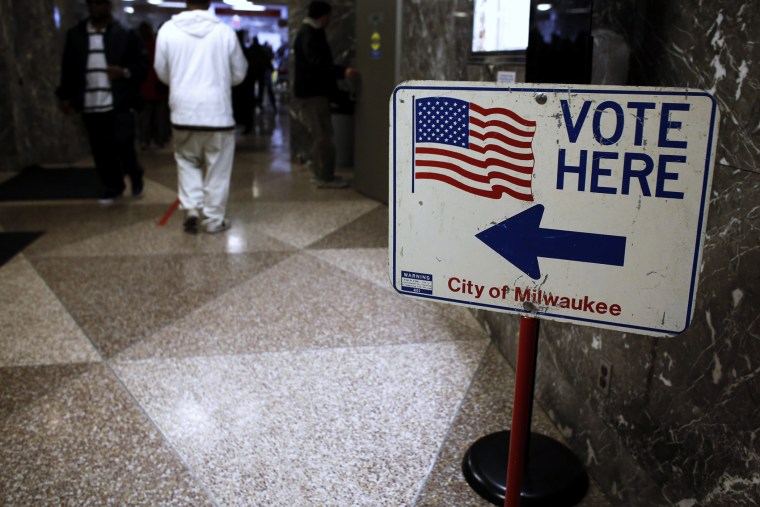In July, the Wisconsin Supreme Court narrowly
endorsed an unnecessary voter-ID law, concluding that "voter fraud" is a legitimate "concern." The ruling specifically pointed to a Republican voter in Milwaukee accused of 13 counts of voter fraud --
none of which, ironically, would have been prevented by a voter-ID law.
It was not, however, the final word on the subject. A parallel case was pending in the federal courts, though as Zack Roth reported, it didn't go the way voting-rights proponents were hoping, either.
A U.S. appeals court has ordered that Wisconsin's voter ID law go into effect immediately, raising the prospect of chaos and confusion at the polls this fall. A three-judge panel made the ruling after hearing an appeal Friday by the state of Wisconsin. The ID law had been struck down by Judge Lynn Adelman in April, who ruled that it violated the Voting Rights Act's ban on racial discrimination. "The panel has concluded that the state's probability of success on the merits of this appeal is sufficiently great that the state should be allowed to implement its law, pending further order of this court," the judges wrote.
The three-judge panel on the 7th Circuit Court of Appeals was comprised on Judges Frank Easterbrook, Diane Sykes, and John Daniel Tinder -- all three were appointed
by Republican presidents. Their ruling overturns a district court from the spring that
said "no rational person could be worried about" voter fraud at the polls.
The immediacy of the implementation matters, with Wisconsin hosting a very competitive gubernatorial race and a handful of close congressional races. Indeed, Gov. Scott Walker (R), who signed the voter-ID measure into law, is now likely to benefit from blocking voters who may have been likely to vote against him.
Elections law expert Rick Hasen described the 7th Circuit's ruling as "
a big, big mistake," adding that he expects "an emergency motion to the Supreme Court."
Late Friday afternoon, a panel of Democrat-appointed judges on the Sixth Circuit upheld a preliminary injunction from a Democrat-appointed district court judge striking down Ohio's cuts to early voting. Two hours earlier, however, a trio of Republican-appointed judges on the Seventh Circuit overturned an injunction from a Democratic judge blocking Wisconsin's voter ID law. This is why elections matter. And the courts are increasingly becoming the arbiters of who does and does not get to participate in them.
